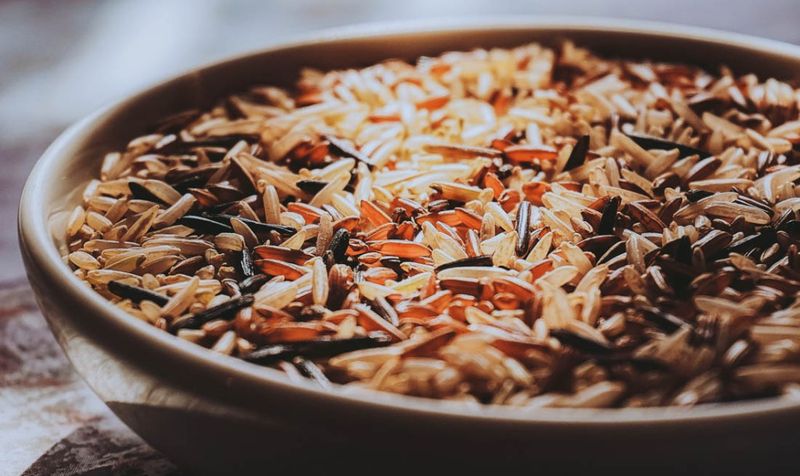Exploring food choices can lead to surprising discoveries, especially when it comes to maintaining gut health. Commonly perceived as unhealthy, certain foods have gained notoriety for their potential negative impact on our digestive system. However, when consumed mindfully, these “bad” foods might bring unexpected benefits to the gut microbiome, contributing to a balanced digestive ecosystem.
In reality, the gut plays a pivotal role in our overall well-being, influencing everything from digestion to mental health. By critically examining foods often labeled as harmful, we can uncover hidden advantages and promote a healthier gut without compromising taste or enjoyment. Let’s explore these 10 misunderstood foods.
1. Fried Foods

Contrary to popular belief, fried foods offer more than just a crispy delight. While they’re often criticized for high unhealthy fat content, moderate consumption, especially when cooked in quality oils, can introduce a unique texture and taste that delights the palate. Not all fried foods are created equal. Choosing options fried in olive or avocado oil can provide healthier fats, necessary for hormone production and nutrient absorption. But remember, balance is crucial. Occasional indulgence in fried treats, enjoyed mindfully, can be a part of a diverse diet, sparking joy and satisfaction without guilt.
2. Processed Meats

Processed meats often carry a bad reputation, but they have been a traditional part of many cuisines. When chosen wisely and consumed sparingly, they can be part of a balanced diet. The secret lies in selecting high-quality, minimally processed options without added nitrates and preservatives. Such choices can offer flavorsome protein sources, essential for muscle maintenance. Enjoying a small serving alongside fiber-rich vegetables can create an appealing, yet balanced meal. This approach allows for satisfaction without overwhelming the gut. By practicing mindful consumption, processed meats can coexist with gut-friendly foods.
3. Sugary Foods and Beverages

Sugary treats often face criticism, yet in moderation, they can boost mood and energy temporarily. The key to enjoying sweets lies in moderation and pairing them with high-fiber foods. Such a combination can slow sugar absorption, reducing spikes in blood sugar levels. Occasionally indulging in a sweet dessert after a balanced meal can satisfy cravings without harming gut health. Awareness of portion sizes and choosing natural sugars found in fruits can also benefit the digestive system. This mindful approach ensures that sugary delights remain a joyful part of life, without derailing gut balance.
4. Artificial Sweeteners

Artificial sweeteners have emerged as sugar alternatives, often used in low-calorie diets. While some studies suggest they may alter gut bacteria, they can provide sweetness without added calories, potentially aiding weight management. However, moderation is vital to avoid potential negative impacts on the gut. Integrating these sweeteners into a varied diet, alongside fruits and whole grains, can limit their adverse effects. This balanced approach allows for enjoying sweet flavors while conscious of overall gut health. By staying informed and choosing wisely, artificial sweeteners can have a place in a health-conscious lifestyle.
5. Refined Grains

Refined grains often receive criticism for their low fiber content, but they have been dietary staples for centuries. When consumed in moderation, they provide easily digestible energy, suitable for individuals with sensitive stomachs. Pairing white bread or pasta with fibrous vegetables enhances digestion, mitigating potential drawbacks. Additionally, enriched refined grains offer essential nutrients, such as iron and folic acid, contributing to overall health. By balancing refined grains with whole grains, one can enjoy varied textures and flavors while fostering a healthy gut. This inclusive approach promotes diversity and satisfaction in meal choices.
6. High-Fat Dairy Products

High-fat dairy products, like cheese and ice cream, are often viewed as indulgences. Yet, they provide essential nutrients, including calcium and vitamin D, crucial for bone health. For those not lactose intolerant, these foods can be enjoyed in moderation. Combining full-fat dairy with fruits or whole grains can enhance digestibility and nutritional value. Embracing these foods within a balanced diet can contribute to satiety, reducing cravings for less nutritious options. By savoring high-fat dairy thoughtfully, one can experience pleasure without compromising gut health or overall dietary goals.
7. Alcoholic Beverages

Alcoholic beverages often carry warnings for gut health, yet when consumed responsibly, they can be part of social enjoyment. Red wine, in particular, offers antioxidants that may benefit heart health. Moderation remains key, as excessive consumption can disrupt gut microbiota balance. Pairing alcohol with meals can reduce its impact on the digestive system. Choosing lower-alcohol content options further minimizes potential harm. By enjoying alcoholic beverages mindfully and socially, one can relish the experience without jeopardizing gut well-being. This perspective fosters a balanced lifestyle where enjoyment and health coexist.
8. Trans Fats

Trans fats are often villainized for their health impacts, yet they add unique texture and flavor to foods. Modern dietary shifts have reduced trans fat content in many products, making occasional indulgence less harmful. Selecting products with minimal trans fats, or those using healthier alternatives, allows enjoyment without significant health concerns. Pairing trans fat-containing foods with nutrient-rich options, like salads or vegetables, can balance meals. This mindful consumption reduces potential inflammation while maintaining culinary pleasure. By staying informed and choosing wisely, one can enjoy trans fats’ culinary benefits without compromising gut health.
9. High-Sodium Foods

High-sodium foods often face scrutiny for their health implications, yet salt has been a preservative and flavor enhancer for ages. Moderation, once again, is essential. By incorporating high-sodium items sparingly, alongside potassium-rich foods, one can mitigate potential adverse effects on blood pressure. This balanced approach helps maintain the gut’s microbial environment. Selecting products with reduced sodium content and using herbs for flavor further enhances dietary quality. Through mindful choices, high-sodium foods can complement a balanced diet, preserving taste and satisfaction without overwhelming the system.

Well, hello there!
My name is Jennifer. Besides being an orthodontist, I am a mother to 3 playful boys. In this motherhood journey, I can say I will never know everything. That’s why I always strive to read a lot, and that’s why I started writing about all the smithereens I came across so that you can have everything in one place! Enjoy and stay positive; you’ve got this!

